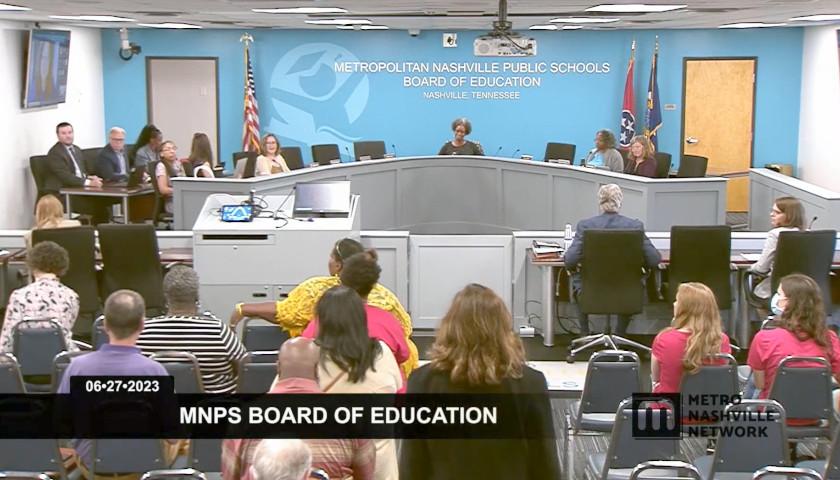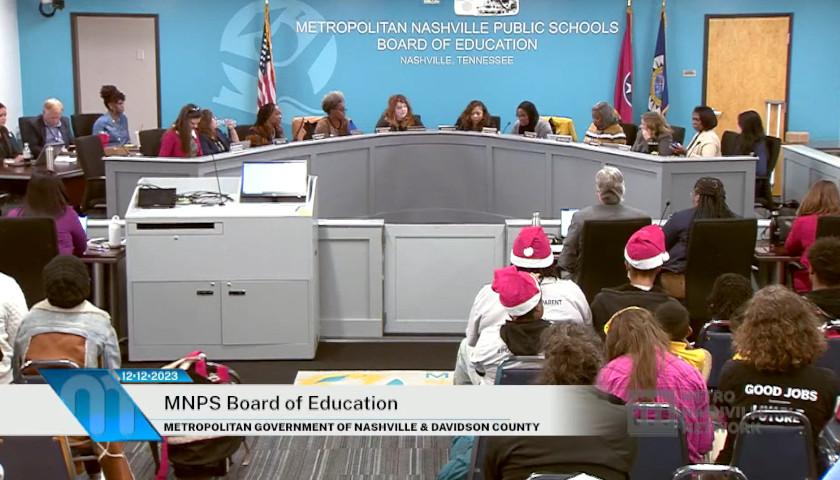Metropolitan Nashville School (MNPS) Board approved the final $1.2 billion budget for the 2023/2024 school year this week, which eclipses previous district budgets.
The vote to adopt was 7- 0, with Board Members Emily Master and Abigail Tylor abstaining.
The new budget continues past efforts to raise MNPS employee salaries. This year, the focus is on increased administrator pay and a 4 percent cost-of-living adjustment (COLA) for all district employees. While district leadership was grateful for the COLA but disappointed that the 4 percent increase was less than the 6 percent awarded by Metro Council to city employees. A decision that gives 2 percent less to 37 percent of the city’s workforce.
“We understand and we hear you about the 6 percent,” said board budget chair Freda Player. “Metro Council broke their tradition of funding the COLA for both MNPS and for Metro government as equal, as they’ve done in the past. We are extremely disappointed in the council and Metro government not fulfilling that tradition.”
The District 7 representative was not alone in voicing displeasure over the discrepancy. Board Members Abigail Tylor and Emily Masters proposed awarding district employees a one-time $1,000 bonus to make up for the lower COLA. Funds for the proposed bonus would be reallocated from the remaining Elementary and Secondary School Emergency Relief Fund (ESSER) money awarded by the federal government in response to the pandemic.
MNPS Director of Schools Dr. Adrienne Battle, who attended the meeting remotely, pushed back on any suggestion that “extra” money was available in the ESSER budget. She reminded board members that they had recently approved a budget for the federal monies. Any reallocation of funds would potentially leave a previously approved expenditure unfunded.
In response, Tylor asked to see a detailed ESSER budget. “We approved a general budget for the funding, but I’ve never seen a line item budget,” Tylor said. “If Dr. Battle’s office could send over a copy it would be appreciated.”
In addition to the COLA questions, Master wanted more information on the newly created administrator pay scale.
Under the previous pay schedule, a principal topped out after eight years of service. Funding allocated in the new budget expands that pay schedule from eight steps to 15 steps. Masters was interested in how the district planned to implement the change.
MNPS chief of human resources Lisa Spenser said, “Once on the scale, you move one step a year until you get to the top of the scale, just like the rest of our scales.” Spenser continued, “Getting on the scale is a slightly different calculation. It is generally based on the number of years of administrative experience you have. And then we place you on the scale.”
Masters pointed out that the new pay schedule does not account for district principals who’ve led their schools for over eight years. It puts them on equal footing with principals with shorter tenures at their current schools.
The District 3 representative viewed this as “prioritizing recruitment over retention.” This does not align with the expressed position of the MNPS board, which has previously urged Battle’s team to increase retention efforts.
The board agreed to revisit the subject at its July retreat.
Tylor drew attention to substitute pay, which remains unaddressed in the 2023 – 2024 budget. The District 9 representative attempted to get fellow board members to formally commit to rectifying that oversight.
The new budget allocates $10.8 million for “classroom associates.” The new substitute teacher model proposed by MNPS places substitutes in individual schools and makes them full-time employees eligible for benefits and professional development opportunities. Even with implementing “classroom associates,” traditional substitutes will still be needed. Additional money was allocated via a Metro Council amendment for raises for those employees, but that money won’t be available until mid-January 2024.
The new budget takes effect on Saturday.
– – –
TC Weber is a reporter at The Tennessee Star and The Star News Network. He also writes the blog Dad Gone Wild. Follow TC on Twitter. Email tips to [email protected]. He’s the proud parent of two public school children and the spouse of a public school teacher.






Money! Money! Money! Why do administrators get a bigger raise than the real workers. The administrators typically make a lot more to start with. Besides the “product” of MNPS is so poor that pay should be decreased in an effort to match pay with results.